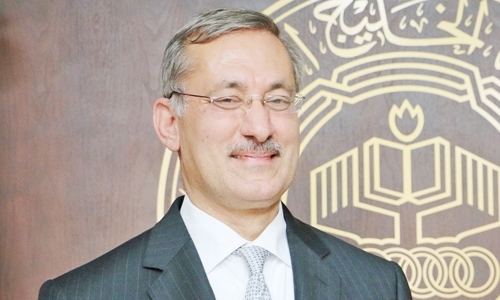Social innovations for sustainable development: Innovators without borders
When the founder of Grameen Bank, Mohmmad Yunus, proposed a micro-finance model of a social enterprise, he simply wanted to address unmet market needs in society. This is the essence of social innovation for sustainable development. Many new ideas that underpin social innovations like Khan Academy, Doctors without Borders, Open Source courses, Fair Trade, Wikipedia and the social work in Africa by Dr. Abdul-Rahman Al-Sumayt from Kuwait aim to address the root causes of social issues in key domains like education and health. The rationale of these social innovations is to empower and give a voice to marginalized local people in society and to connect the dots between public policy, private sector and civil society.
The notion of social construction of technology reflects the deep learning among the scientific community that there are limits for science and technology. As a result, social innovation models were explored to fix market failures so as to devise appropriate solutions that satisfy the criteria beyond precision and efficiency to include equity, ethics, and social justice. This is evident in the emergence of a number of global initiatives to mainstream social innovation in the public sphere including Social Innovation Funds, Social Innovation Labs, and the Centers for Social Innovation at many universities in USA and Europe.
The catalyst for making things happen hinges on the capacity of the social entrepreneur to see, imagine and act upon new ideas that serve the public interest. The role of the entrepreneur is to co-create a new solution to a social problem and to enhance the capacity of the society to act and renew its outlook. The generation, piloting and testing of innovative ideas requires a focused effort to manage innovation across different sectors and players to overcome technological or institutional inertia.
Since the GCC is undergoing a journey of transformation as articulated in vision 2030, it is critical to be mindful of the fact that both technological and social innovations are needed to co-create new realities to unlock the human potential. In essence, social innovations include three aspects; i.e., meeting basic human needs; changing social relations; and empowering local people. However, the challenge is that innovation is path-dependent and it implies new business models to work across institutions and cultures.
Many vivid examples of social innovations are inspired from local norms and values in the Middle East like sharing food and clothes within the neighborhood form a key element for social cohesion and development. The civilizational power of the local culture inspired a number of civil-society led innovations like trust funds or endowments (or Waqf) for water, environment, health and education. The GCC region is the home of many locally-rooted social innovations like philanthropy that can be sustained and scaled-up through information technology and media.
The role of innovative universities is to contribute to nurture new models of social, technological, open and user-driven innovations. The alumni and the scientific community represent a network of “Innovators without Borders” that has a mandate and a mission for social development and renewal.
Prof. Odeh Al-Jayyousi, Head of Innovation and Technology Management, Arabian Gulf University, Bahrain, E-mail: odehaj@agu.edu
Related Posts

